
International Research Visiting Fellowships
Congratulations to our researchers who have attracted an international visitor under the IRVF scheme.
2016 IRVF Fellows
|
|
|
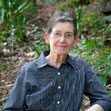
Dr Eileen Gambrill
University of California, Berkley, USA
Professor Mel Gray from the UON School of Humanities and Social Science within the Faculty of Education and Arts, hosted Professor Eileen Gambrill from the School of Social Welfare at the University of California, Berkeley, USA, for the month of June, 2016.
Professor Gambrill, Professor of the Graduate School and Hutto Patterson Charitable Foundation, and Professor Emerita on Child and Family Studies at the School of Social Welfare at UC Berkeley, has an international reputation for her work concerning ethical issues in social work, critical thinking, drawing on the science of behaviour in helping clients, and evidence-informed practice. She has won two Pro Humanitate Awards for her writing. Previous locations as a visiting scholar include the University of Oxford and the School for Policy Studies, University of Bristol, England as a Benjamin Meeker Fellow.
This research fellowship provided an opportunity for Professor Gambrill to work closely with Professor Mel Gray in conducting a critical analysis of the quality of discourse in recent publications in the British Journal of Social Work concerning science, evidence-based practice, and the science of behaviour. Recent years have revealed a highly flawed peer-reviewed literature in professional publications in medicine and psychology. Our work continues this analysis in the field of social work.
Two co-authored publications are expected to result from the visit, with this collaboration with a first-rate international partner further consolidating the world standing of the social work research undertaken at UON.
Professor Gray said of the visit: “I think UON was extremely fortunate to have a visitor of Prof Gambrill’s stature in social work in our midst. Working with her was immensely exciting and stimulating. I have consequently received an invitation from the Dean of Social Welfare at the University of California, Berkeley, to spend a few months there to further the work Eileen and I have begun. We hope to produce a book and A1 journal publication together.”
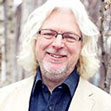
Professor Stephen Goss
University of Surrey, England, UK
During a two-week visit in April 2016, UON’s Dr Philip Matthias, was host to Dr Stephen Goss, Professor of Composition at The University of Surrey, UK.
Recognised as one of the UK's premier composers, as well as a committed researcher and academic, Professor Goss shared many insights, particularly around his areas of expertise, practice as research and composition.
During his visit, Professor Goss was the plenary speaker at the SOCA in Collaborative Contemporary Compositional Processes. Goss also participated in the School of Creative Arts 2016 National Conference for Creative Arts postgraduate students, presenting a paper entitled How the Creative Process Can Assist Global and Regional Impact.
“I enjoyed interfacing with a combination of undergraduates, postgraduates, and staff,” Professor Goss says.
“I found the symposium very interesting due to the great many parallels between our institutions, in terms of issues related to organisation, funding, and research. It was a real sense of stumbling across a parallel universe.”
Offering staff and PhD students techniques and resources related to practice as research, and the assessment of such, Professor Goss delivered knowledge well established in the UK but not so broadly understood in Australia.
Dr Matthias was grateful for the information imparted by Professor Goss.
“We are trying to position creative arts in an active space in research, and raise awareness of what we do here. Having Stephen visit, bringing with him his wealth of experience, has confirmed we are on the right path.”
The good will exchanged during the visit has manifested in engagement between student composers at UON and Surrey University, with the possibilities of collaborations, co-supervisions, and exchanges being explored.
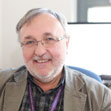
Professor Rafal Abdank-Kozubski
Jagiellonian University, Poland
Professor Rafal Abdank-Kozubski from the Jagiellonian University, Krakow, Poland was a guest of UON Professor Graeme E. Murch for four weeks in February 2016. Professor Abdank-Kozubski is the Head of the Department of Solid State Physics at Jagiellonian University. Founded in 1364, Jagiellonoan is one of the world’s oldest universities.
Although this was his first visit to Newcastle, Professor Abdank-Kozubski began working with Professor Murch, member of the UON PRC for Geotechnical and Materials Modelling, and Director of the Centre for Mass and Thermal Transport in Engineering Materials, in 2005. Their collaboration has focused on their common interest in the atomistic modelling of diffusion and diffusion-controlled processes in condensed matter.
Since 2005, their groups have co-presented joint talks/posters at 17 conferences and are joint authors of 17 papers. UON is a Partner University (one of only two outside Europe) of a European Community 6-year grant involving 9 universities and led and coordinated by Professor Abdank-Kozubski.
The visit of Professor Abdank-Kozubski saw the collaborators working on the elaboration of computer codes, analysis of diffusion simulated by means of Monte Carlo methods in terms of effective diffusivities, correlation functions and diffusion paths for particular diffusers. Professor Abdank-Kozubski presented three seminars during his visit on various computer simulation methods of diffusion.
Further outcomes expected include an ARC-Discovery grant application, the writing of related joint papers, and an ongoing student exchange program beginning recently with a 14 month visit to the University of Newcastle by Jagiellonian University PhD student Mr Piotr Sowa who is funded by an Endeavour Fellowship and is supervised by both professors.
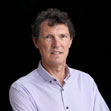
Professor D. Vaughan Griffiths
Colorado School of Mines, USA
Professor D. Vaughan Griffiths from the Department of Civil and Environmental Engineering at the Colorado School of Mines in Golden, USA, was a guest of Dr Jinsong Huang, from the UON’s Faculty of Engineering and Built Environment during December 2016.
This is the fourth visit to UON for Professor Griffiths, a highly acclaimed world-leading expert in the field of Georisk. Professor Griffiths is a Partner Investigator in the ARC Centre of Excellence for Geotechnical Science and Engineering (CGSE). The ongoing collaboration with Dr Jinsong Huang, which began while they were colleagues at the Colorado School of Mines, has continued to develop since Dr Huang took up a position as Research Academic with the CGSE in 2011.
With this collaboration already producing many tangible outcomes, the 2016 visit enabled concentrated efforts resulting in current research papers being finalized for publication, as well as development of emerging research in the area of Georisk.
During his visit, Professor Griffiths delivered a Keynote Lecture at the 2016 CGSE Annual Workshop, held in Manly, NSW. The lecture was titled ‘Observations on probabilistic slope stability analysis’. There were approximately 100 attendees at the workshop including the partner institutions from the Universities of Newcastle, Western Australia, and Wollongong, plus overseas participants from TU Graz and Dundee as well as numerous industry representatives.
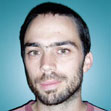
Dr Franck Bourrier
National Research Institute of Science and Technology for Environment and Agriculture
In early 2016, Dr Anna Giacomini, from the UON PRC for Geotechnical Science and Engineering PRCGSE within UON’s Faculty of Engineering and Built Environment, visited collaborators at internationally recognized institutes of research into rock slope stability, rock fall hazard and risk assessment in Spain, France, and Italy.
Dr Giacomini spent two weeks working with Dr Franck Bourrier at the National Research Institute of Science and Technology for Environment and Agriculture of France, Grenoble, France. Dr Giacomini and Dr Bourrier are now working on discovery and linkage project applications together, and co-supervising 2 French Master students experimentally and numerically studying root/soil interaction for slope stability and tree anchorage.
Professor Guido Gottardi from the Department of Civil Engineering at the University of Bologna, Italy, was Dr Giacomini’s next host. Having previously collaborated with Dr Giacomini on rockfall related research and co-supervised a PhD student, this visit allowed for the two to further pursue research on rockfall, explore options for student exchange, and rework a previously unsuccessful submission to the European Alpine Space Program (INTERREG).
Professor Jordi Corominas, from the Department of Geotechnical Engineering and Geosciences, at the Technical University of Catalonia, Barcelona, Spain, was also visited by Dr Giacomini during her research trip. This collaboration will inform Dr Giacomini’s new research into rockfall hazard mapping and assessment, an area in which Professor Corominas is a leading expert.
All three teams are aligned with Dr Giacomini’s focus on improved natural hazard prevention in strategies for sustainable territorial development. Visiting each of these teams allowed Dr Giacomini to advance networking and facilitate the complex collaboration arrangements needed in the formulation of a multinational HORIZON 2020 bid.

Professor Alexander Puzrin
Swiss Federal Institute of Technology, Switzerland
Professor and Chair of Geotechnical Engineering at the Swiss Federal Institute of Technology Zürich Alexander Puzrin was a guest of Dr James Hambleton, of the ARC Centre of Excellence for Geotechnical Science and Engineering within the UON Faculty of Engineering and Built Environment, for two weeks in January 2016.
Among the world’s most highly regarded researchers in the field of geotechnical engineering, in 2014, Professor Puzrin was elected as Fellow of the Institution of Civil Engineers.
The potential role of shear band propagation in tsunamigenic landslides (TGLs) was identified in groundbreaking computational models developed by Professor Puzrin and his collaborators
Puzrin was invited to Newcastle by Dr Hambleton to initiate a research collaboration aimed specifically at revisiting these models, by exploring how a change of direction of shear band growth affects the size and velocity of the landslide.
A long-term research collaboration was cemented between Professor Puzrin, the host, and other members of the ARC Centre of Excellence for Geotechnical Science and Engineering (CGSE), a joint initiative between UON, the University of Western Australia, the University of Wollongong, and industry partners.
During his stay, Professor Puzrin also delivered to the public an overview of his research on submarine landslides.
“Professor Puzrin's visit was highly productive and a delight in so many respects,” Dr Hambleton says of the visit.
“His lectures never fail to enlighten and entertain, and this time was no exception. Without question, the best dimension to his visit was the opportunity to show firsthand what a thriving and unique place the CGSE has become. Not long into his trip it became clear that this was merely the first of more visits and interactions to come.”

Professor Michael Campbell
University of Sheffield, UK
Professor John Attia from the Centre for Clinical Epidemiology and Biostatistics, within the UON Faculty of Medicine and Public Health, hosted Professor Michael Campbell from the University of Sheffield, UK, in early 2016. A Professor of Medical Statistics, Campbell first visited the University of Newcastle in 1988 as part of a team from the University of Sydney teaching epidemiology.
The purpose of this visit to UON and HMRI was to collaborate on statistical and epidemiological methods with the staff of the Centre for Clinical Epidemiology and Biostatistics, and the staff of the Clinical Research Design, Information, Technology and Statistical Support (CREDITSS) unit.
As an expert on clinical trials and author of a recent book on the subject, Professor Campbell gave a number of talks and workshops to upskill interested staff, Including workshops on cluster randomised trials and stepped wedge designs, as well as talks on the emerging CONSORT guidelines for pilot and feasability studies, and covariate adjustment for logistic regression models.
As a member of many grant panels in the UK, Professor Campbell was also able to advise researchers, alongside the CReDITSS Unit, on study aspects such as design, statistical analysis plans, and sample size calculations, to improve the quality of their NHMRC project applications.
“Thanks to the fellowship, I was able to meet some wonderful people and also have a great time visiting some beautiful countryside and beaches,” Professor Campbell said of his visit.
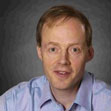
Professor Hugh Markus
University of Cambridge, UK
Professor Hugh Markus from the University of Cambridge, UK was the guest of Dr Liz Holliday, from the UON PRC for Translational Neuroscience and Mental Health, for two weeks in November 2016.
Professor Markus is an academic clinical neurologist with specialist interest in stroke, and a world leader in stroke genetics. Professor Markus is a long-standing colleague and mentor for a number of the Newcastle stroke genetics collaborators, having supported and guided the Newcastle stroke genetics and biomarker program since its inception in 2008.
With Markus’ guidance and support, the Australians Stroke Genetics Collaboration (ASGC), a group formed and lead by University of Newcastle researchers, was awarded a 2015 NHMRC project grant for the ‘Targeting Optimal Thrombolysis Outcomes’ (TOTO) study. TOTO combines the Newcastle expertise in acute stroke neurology, advanced imaging endophenotypes, with genetic and biomarker measurement and analyses.
The Australian arm of the TOTO study has begun, forming the ‘discovery cohort’ where putative biomarkers for therapeutic benefit and risk will be identified. An international replication cohort is being assembled. The visit set in place the framework and processes for recruitment of the international replication cohort for TOTO within the UK and Spain.
The visit also furthered a separate study, with plans put in place to undertake detailed genetic sequencing of a family affected by serious, potentially fatal headaches.
The visit consolidated collaborative links with the University of Cambridge, and facilitated progress for two important studies.
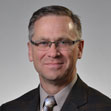
Professor Richard Bischoff
University of Nebraska, USA
Distinguished Professor of Family Studies Alan Hayes AM from the Family Action Centre in the UON Faculty of Health and Medicine, hosted Professor Richard Bischoff from Child, Youth and Family Studies at the University of Nebraska-Lincoln, USA during a seventeen-day stay in early 2016.
Dr. Richard Bischoff and his team at the University of Nebraska-Lincoln have established a program of research and outreach/service delivery addressing mental health disparities in rural communities. Their research and service delivery protocols build community capacity through a culturally sensitive application of Community Based Participatory Research that respects community strengths and elevates local contributions to reducing disparities.
The visit by Professor Bischoff allowed for the further development of a comparative study of the efficacy of an adapted protocol in the communities throughout rural NSW and rural Nebraska. A collaborative project is under development involving colleagues from UON’s Centre for Rural and Remote Mental Health (CRRMH) that involves the implementation of protocols and practices developed by CRRMH in rural Nebraska.
The team is exploring the possible expansion of this initiative to rural villages in India through collaboration with colleagues at the Tata Institute of Social Sciences in Mumbai. UON, the University of Nebraska-Lincoln, and the Tata Institute for Social Sciences are founding members of the Global Consortium for International Family Studies.
While visiting NSW, Professor Bischoff delivered public and professional talks, workshops for health professionals in Newcastle and Orange and for staff at the Callaghan campus and at the Centre for Rural and Remote Mental Health. While in Australia he also participated in media interviews highlighting his work in Nebraska and its implications for research and practice in our rural communities.
As Professor Hayes observed, “support from the University of Newcastle was of great value in advancing a cross-national research collaboration in an area of public health policy and practice that carries considerable benefit to the health and wellbeing of rural and remote communities in both countries”.
Professor Bischoff agrees that the outcomes of this collaboration could have great effect.
"The University of Newcastle’s innovative initiative to increase cross-national research collaborations has great potential for sustainable impact extending beyond New South Wales and Australia. The partnership between faculty at the Family Action Centre and the University of Nebraska-Lincoln, facilitated by a generous grant from the University of Newcastle, will result in cross-national research and scholarship that will address mental health disparities in rural communities in both countries, and will result in models of prevention and treatment delivery that will have impact world-wide.”
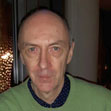
Dr Bernhard Schmidt
Chemnitz Medical Centre, Germany
Professor Neil Spratt and Mr Thomas Kovaks from the UON Translational Stroke Research Laboratory, and Centre for Translational Neuroscience and Mental Health, hosted a visit from Dr Bernhard Schmidt from the Department of Neurology at the Chemnitz Medical Centre, Germany, for three months mid-2016.
The Investigators at the Translational Stroke Research Laboratory under Professor Spratt have recently demonstrated in animals that even after very small strokes, the intracranial pressure (ICP) rises dramatically and peaks at approximately 24 hours after stroke onset. Until now, neurologists and stroke researchers were only aware that ICP elevated to dangerous levels after very large strokes.
A mathematician and software engineer, Dr Schmidt’s most prominent area of expertise is the development of software for noninvasive intracranial pressure (nICP) monitoring in patients with traumatic brain injury.
Tom Kovaks, a medical student undertaking a 1-year research honours degree monitored stroke patients and a large group of normal controls at two time points, using non-invasive ultrasound. Dr Schmidt's expertise was used during his visit to optimise his software for the local monitoring equipment and assist in streamlining the large amounts of data for nICP measurement in the study groups.
This is the first time evidence of ICP elevation in human patients with minor stroke has been collected, and is also by far the largest validation of nICP in normal subjects. The ongoing study has the potential to dramatically change clinical stroke treatment practices.
Professor Spratt reflects on the fruitful collaboration:
"This visit surpassed our expectations - not only were we able to develop and complete the planned analysis, but conversations over coffee generated some really exciting new hypotheses, which we will work together to test in the coming year.”
“In my view, it is hard to overstate how important face-to-face conversations are for generating great research ideas. We are very grateful for the opportunity provided by the awarding of this IVRF."
"I had a wonderful visit which produced new research ideas and plans as well as the planned work on this exciting project. I want to thank Professor Neil Spratt as well as Thomas Kovacs and the whole research group for their very friendly welcome giving me the feeling of being at home. I also want to thank Damian McLeod who had the idea for this visit. "
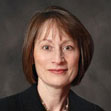
Dr Grace Baranek
University of North Carolina, USA
Associate Chair for Research in the School of Medicine at the University of North Carolina, Chapel Hill, USA, Professor Grace Baranek was a guest of Professor Shelly Lane, and Associate Professor Alison Lane, from the UON’s Priority Research Centre for Translational Neuroscience and Mental Health for 19 days during December, 2015.
Professor Baranek’s research focus is on early identification of sensory processing and social-communication features in children with autism. The UON’s Associate Professor Alison Lane’s work is the identification and characterization of sensory subtypes in autism, with an aim toward subtype definitions that will inform specific approaches to intervention.
UON Professor Shelly Lane’s work has focused on behavioural and autonomic characterization of disorders of sensory modulation in children with ADHD and children with autism.
Collaboration between these three has the potential to further subtyping of sensory features in autism, both behaviourally and physiologically. The investigation of both early identification and treatment outcomes based on subtyping has the potential to substantially change clinical practice.
During Dr Baranek’s visit, the collaborators identified overlapping data sets for larger scaled analyses of sensory features/outcomes and cross-validation of subtypes. Dr Baranek also provided a public seminar at the Hunter Medical Research Seminar attended by over 90 people from the Hunter and Central Coast.
Associate Professor Alison Lane completed a return visit to the University of North Carolina in May 2016 to further this collaboration. During this visit subtype cross-validation analyses were carried out and discussions were held relating to post-doc/PhD exchanges and joint grant submissions. One journal paper has been submitted and another is in preparation as a result of the IVRF program.
Associate Professor Lane reflects: ‘The visit from Dr Grace Baranek to UoN has stimulated new work in the field of sensory features and autism that will be of international relevance. It has formalised the collaboration between three leaders in the field, two of which are UoN researchers. Outcomes of thecollaboration between Grace Baranek, Alison Lane and Shelly Lane will be a customised approach to the treatment of sensory issues in autism. We hope that this will provide individuals with autism and their families with more clarity about intervention choices’.

Dr John S. Wilson
University of Oxford, UK
Professor John S Wilson of the Mathematical Institute at the University of Oxford, UK was a guest of Professor George A Willis from the PRC for Computer-Assisted Research Mathematics and its Applications (CARMA) within the UON’s Faculty of Science, for six weeks during mid 2016.
Professor Wilson is an international leader and pioneer of the study of residually finite groups. Wilson’s work has proved to be critical for the understanding of totally disconnected locally compact (t.d.l.c.) groups, which is the subject of a world leading research program at the University of Newcastle. Groups use algebra to understand symmetry and this research investigates symmetry in networks.
In several recent papers, the UON’s Professor Willis and Dr Colin Reid, along with Dr Pierre-Emmanuel Caprace of the Université Catholique de Louvain in Belgium, have established a general framework for the classification of compactly generated, simple t.d.l.c groups, that is inspired by and built upon Wilson’s work.
During his visit, Professor Wilson collaborated with Professor Willis and Dr Reid on the local structure of t.d.l.c. groups, which is the basis of the classification of simple groups. They investigated the transfer of ideas developed for t.d.l.c. groups back to the profinite context, and some difficult questions about just-infinite groups which, unfortunately, remain intractable.
An international workshop on totally disconnected groups was held in Newcastle in conjunction with Professor Wilson’s visit and he presented a series of five lectures at this workshop. Notes from these and other lectures, including series of lectures by Willis and Reid, will appear in conference proceedings.
Professor Wilson was also a panel member at a forum on `Creativity and Mathematics' held at the Newcastle Museum on August 1st and which attracted an audience of 90 members of the public. He spoke about music and mathematics based on his own experience as a mathematician and as choral singer.
Professor Wilson’s interests in the mathematics of symmetry and in music were also expressed through discussions he had with members of the UON Conservatorium during his visit.
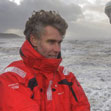
Professor Gerd Masselink
Plymouth University, UK
Dr Hannah Power from the Environmental and Climate Change Research Group (Earth Science) within the UON Faculty of Science, travelled to the UK to work with Professor Gerd Masselink and Dr Chris Blenkinsopp over four weeks in March and April, 2016. Professor Masselink is from the internationally recognized Coastal Processes Research Group at the University of Plymouth, UK and Dr Blenkinsopp is from the equally esteemed Department of Architecture and Civil Engineering at the University of Bath, UK.
Professor Masselink and Dr Blenkinsopp are world-leading researchers in the development of new approaches for measuring waves, and have recently begun using laser-scanning techniques (LiDAR) to gain measurements of the sea surface across the full width of the surf and swash zone that are continuous in both space and time.
Dr Power’s work has identified that mean parameters used in existing key wave transformation models are not sufficiently capturing natural variation. The new LiDAR technique allows data to be captured that will identify this variation and has the potential to lead to a new generation of more accurate coastal models.
Dr Power’s fieldwork in Saltburn allowed her to participate in field experiments led by Blekinsopp utilising the LiDAR technique. Following the fieldwork, Dr Power spent time at Plymouth and Bath to discuss outcomes from the fieldwork and to plan data analysis, publications and grant applications.
2015 IRVF Fellows
|
|
|
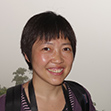
Professor Zhang Shuangli
School of Philosophy at Fudan University, Shanghai, China
Professor Roland Boer from the School of Humanities and Social Science hosted Professor Zhang Shuangli from the School of Philosophy and Centre for the Study of Marxism Abroad at Fudan University, Shanghai, for the month of August, 2015. The keynote speaker at the UON Theology and Treason conference in 2012, Professor Zhang's return visit served to strengthen collaborations with both Roland Boer and the UON’s research concentration on religion and radicalism.
During her visit, Professor Zhang worked with Professor Boer to develop a research project generating innovative and critical ideas with regard to the genesis and forms of civil society in relation to religion in China and Australia. Pathways for scholarly exchange between UON and Fudan were formalized during the visit.
A prolific researcher with extensive networks and an impressive international profile, Professor Zhang also presented a popular public seminar on the intertwinement of religion and modernity in the context of Chinese modernization during her stay.
UON has developed significant collaborative links with Fudan, one of China's leading universities and one with a significant international profile. The close connection with the School of Philosophy, and especially the Centre for Marxism Abroad, has ensured the UON is a destination of choice for scholars from Fudan. Professor Zhang was the highest profile visitor thus far from her school, where she is the deputy director. Her visit enabled the strengthening of ties and bodes well for wider plans towards research concentration at UON. For Professor Zhang, the reason for her visit was to the 'engage with one of the world's leading universities in the area of Marxist philosophy'.
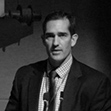
Associate Professor James M Elliott
Feinberg School of Medicine at Northwestern University, Chicago, Illinois, USA
Associate Professor James M Elliott from the Feinberg School of Medicine at Northwestern University, Chicago, USA was a guest of Professor Philip Bolton and Associate Professor Suzanne Snodgrass from the Priority Research Centre for Brain and Mental Health for a month in mid-2015.
Elliott, an international leader in the investigation of traumatic neck disorders using MRI applications to quantify physiological changes in the spinal cord and skeletal muscles following spinal injuries, shared his expertise with UON's Prof Bolton, A/Prof Snodgrass and A/Prof Stanwell, who are currently investigating chronic neck pain using MRI and motion analysis in humans.
A/Prof Elliott brought new expertise, techniques, and skills to the UON, enabling Newcastle researchers to fully utilize the potential of the new HMRI MR facility as well as optimize significant links with the UON teaching and research communities.
Prof Bolton said ‘A/Prof Elliott’s visit also allowed for the collection of pilot data and development of protocols for collaborative multi-site studies that will support strong competitive funding opportunities and it opened opportunities for shared PhD students and post-doctoral fellows’.
Having trained and lived in Queensland for a period (2002-2010), A/Prof Elliott said he was aware of the strong research environment at the University of Newcastle, in particular, the close relationships between, and within, UON, HMRI, and the John Hunter Hospital.
“I was truly excited by the prospect of partnering with Prof Bolton, A/Prof Stanwell, and A/Prof Snodgrass to explore the neurobiological mechanisms underlying idiopathic, non-traumatic neck pain. Combining existing imaging and clinical measures in tandem with our own unique skill sets brings great hope towards new (and novel) understandings for common, yet enigmatic, neuro- and musculoskeletal conditions such as head/neck pain. This collaboration represents a great first step and will contribute greatly to the overall field...and most importantly, to the patients themselves."
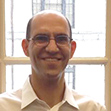
Professor Jeremy Avigad
Department of Philosophy at Carnegie Mellon University in Pittsburgh, Pennsylvania, USA
Professor of Philosophy and Mathematical Sciences Jeremy Avigad from Carnegie Mellon University in Pittsburgh, USA was the guest of Laureate Professor Jonathan Borwein from UON’s Priority Research Centre for Computer Assisted Research Mathematics and it’s Applications (CARMA) for two months in mid-2015.
A leading international figure in proof theory and interactive theorem proving, Professor Avigad is part of a team that has helped establish a new foundation for verification of hybrid systems in engineering, and is currently working on a system for establishing inequalities between real-valued expressions. The UONs Laureate Professor Jonathan Borwein is one of the world leaders in the emerging field of experimental (intensively computer assisted) mathematics. He happens also to be the world's most renowned expert on π.
Their research collaboration during Professor Avigad’s visit focused on proving convex inequalities and their applications, initiating multiple joint publications for high quality journals in computer science.
CARMA PRC organised an exciting three-day international workshop Interactive theorem proving and formal verification in Newcastle to coincide with Professor Avigad’s visit. Avigad also gave a short course on formal verification over the Australian Mathematical Sciences Institute National Seminar network with multi-institutional participants.
As Borwein commented, this visit cemented developments on the boundary between computer-assisted research mathematics -- which is core to CARMA's mandate -- and formal proof theory in which Avigad is a leading expert. Merging the two approaches is crucial to the development of big data techniques for research mathematics.
Avigad adds:
I have been contributing to the development of an interactive theorem proving system, Lean, which is being designed to support and verify mathematical reasoning. I visited the University of Newcastle with a student of mine, Rob Lewis, to explore with Laureate Prof. Borwein ideas and algorithms for verifying mathematical inequalities. Borwein's expertise with experimental mathematics, with computer algebra systems and with the methods of convex analysis provided us with a wealth of information and insights that will guide us in developing automation for Lean over the long term.

Professor Mingui Sun
School of Medicine at the University of Pittsburgh, Pennsylvania, USA
Professor Mingui Sun from the School of Medicine at the University of Pittsburgh (ranked 79th in the world according to THE rankings) visited Professor Clare Collins, a Senior Research Fellow at UON’s School of Health Sciences and her team of Nutrition and Dietetics researchers during August 2015.
An international leader in the research arenas of neurophysiological signals and systems, biosensor designs, brain computer interfaces, bioelectronics and bioinformatics, Professor Sun’s expertise has informed projects being undertaken by the UON’s multidisciplinary Global eHealth Research and Innovation Cluster, of which Professor Collins is a leading force.
Professor Sun is collaborating with the UON team to develop and validate new mHealth tools for portion size measurement and dietary intake assessment. These projects include a smartphone application that will help people choose appropriate portion sizes. The collaboration is also informing new tool to estimate food volumes, with the first experiments have already underway. This new tool will advance the technologies related to automated volume and energy estimation using food images taken by smartphones. Professor Sun’s visit has led to a cross-disciplinary, multinational collaboration (USA, UK, China, Switzerland and Australia) that could revolutionise mobile dietary assessment.
Professor Sun was the keynote speaker at the UON International Satellite Conference “Utilising Technology to Measure Diet and Physical Activity” at HMRI, which explored cutting edge technology and how it can apply to these health indicators. During Professor Sun’s visit at UON he met with over 30 researchers/health professionals to discuss potential collaborations and provide mentoring opportunities. As a result of the visit, a position paper has been submitted on the need for standardised evaluation of food and beverage portion sizes. Professor Sun’s collaboration at the UON has expanded to include Senior Postdoc Dr Tamara Bucher and researchers from ETH Zurich (ranked 9th THE ranking), Switzerland. Professor Sun’s visit has provided the UON research team with an opportunity to extend collaborations related to information technology in relation to diet and physical activity.
As well as establishing a new international collaboration and generating novel applications for smartphone technologies, Professor Sun’s visit provided an opportunity to plan an NHMRC Development Grant application. The visit was aligned with the NeW Directions Strategic Plan and the UON KPI’s.
Professor Sun said he had never previous met such an ethusiastic group of nutrition and technology researcher as those here at UON. He was impressed by the number of collaborative opportunities and is keen to ensure the collaboration flourishes.

Professor Roger Watson
School of Nursing and Midwifery at the University of Hull, Yorkshire, UK
Professor Sally Wai-Chi Chan from UON’s School of Nursing and Midwifery hosted Professor Roger Watson from the School of Nursing and Midwifery at the University of Hull in the United Kingdom.
World renowned nurse scholar and editor in chief of the Journal of Advanced Nursing, during his stay Professor Watson collaborated on the development of a joint research proposal for a NHMRC-European Union Collaborative Research Grant investigating interventions to promote feeding in people with dementia, an area in which he is a preeminent scholar.
Professor Watson mentored junior faculty, building capacity in the next generation of research leaders at the UON, and joined in celebrations for the UON School of Nursing and Midwifery’s 25 year anniversary by presenting a keynote address.
Also during his visit, Professor Watson mentored early career researchers in writing for publication. It is expected that the number of publications in the School will continue to improve. We are working on a grant proposal with the University of Eastern Finland.
Reflecting on his visit, Professor Watson said:
“I was very happy to spend a week at The University of Newcastle in the School of Nursing and Midwifery in October 2015. I got the impression of a very active and engaged School, which was exemplified by the numbers of staff attending the various seminars on writing for publication that I delivered. The School is under relatively new leadership and several members of staff sought me out to share their positive impression of Professor Chan's leadership and ambitions for the school. The University of Newcastle serves a unique area of New South Wales and the anniversary celebrations of the School that took place while I was there brought me into contact with several senior members of staff including the Vice-Chancellor and Pro Vice-Chancellor for research. The university seems to have strong leadership and I was very impressed at the turnout of senior staff and past members of staff for an event celebrating the School’s 25th anniversary at the university and the NSW Minster for Health and local MP whose wife was a nursing student in the School and who talked highly of the care and compassion shown by the staff during her recent period of illness. The university leadership clearly values nursing and the School of Nursing and Midwifery. I look forward, in my conjoint role, to visiting again in future.”
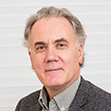
Professor John Horne
Department of History at Trinity College Dublin, Ireland
Based at Trinity College Dublin, Ireland (ranked 61st in the THE list), Australian expat and Professor of History John Horne visited Professor Philip Dwyer from the UON Centre for the History of Violence (CHOV) in the Faculty of Education and Arts (FEDUA).
Widely recognized as a research leader in the history of war specializing in twentieth century France, Professor Horne is Director of the Centre for War Studies at Trinity and participates in a number of European research consortia including the Research Centre of the Historial de la Grande Guerre, Peronne and EURHISTXX.
His visit in July 2015 provided new opportunities for researchers working in the field of violence studies in Newcastle including collaboration on co-authored papers and determining of opportunities for RHD exchange between UON and Trinity College.
Other collaborative opportunities explored during Professor Horne's stay included a bid to become an ARC Centre of Excellence and a multi-institutional ARC Discovery Project for submission in 2017.
Professor Horne said of his visit:
“My visit as an International Research Fellow to the Centre for the History of Violence was immensely stimulating. I found new ideas on common questions concerning war and violence while also appreciating once again that Australia's history of colonisation, internal violence and participation in the wars of the 20th century provide enriching perspectives on these international issues. I think it is to the credit of the University of Newcastle and the Director and staff of the Centre that they have created one of the leading places in the world for thinking productively about why war and violence (unfortunately) play such a key role in human affairs.”
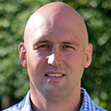
Professor Mark R Beauchamp
School of Kinesiology, University of British Columbia, Vancouver, Canada
Director of the Psychology of Exercise, Health, and Physical Activity Lab at the University of British Columbia (UBC), Vancouver, Canada Professor Mark R Beauchamp came to UON's Priority Research Centre in Physical Activity and Nutrition as a guest of Professor David Lubans.
A chartered psychologist, Professor Beauchamp draws from diverse disciplines to understand both barriers to and facilitators of physical activity across the age spectrum and is a strong proponent of using transformational teaching methods to create change.
Professor Beauchamp’s five-week visit created the opportunity to work with Professor Lubans on developing novel interventions for use in school physical education settings that focus on manipulating the provision of variety support. This collaboration included a pilot project to test the efficacy of a physical activity and movement skills program using peer leaders in primary schools (known as the Great Leaders Active Students program).
Regarding Professor Beauchamp’s visit, Professor Lubans says:
“Professor Beauchamp is an international leader in his field and it was a pleasure hosting him in Newcastle. His 2015 International Research Fellowship was very productive and helped facilitate on-going research collaborations between the University of Newcastle and the University of British Columbia. We have now co-authored a series of peer reviewed journal articles and Mark is currently supporting Dr Narelle Eather as an investigator on her ARC Discovery Project Grant application. The links between our universities and research groups will be further reinforced in 2017, when I spend 2 months in Vancouver as part of my Special Studies Program.”
Strengthened links to UBC, as well as collaboration opportunities with those in Professor Beauchamp’s extensive network of graduate students and post-docs at top-tier institutions are post-visit outcomes of the continuing partnership between Professor Lubans and Professor Beauchamp.
Professor Beauchamp reflects:
“A major reason for coming to UON as part of the International Research Visiting Fellowship (IRVF) was the opportunity to work with Professor Lubans and his team for a highly focused period of time, which in my case was 5 weeks. Professor Lubans is widely recognized as a world-class scholar within the fields of Preventive and Behavioural Medicine. I had a tremendous time at UON, in which I worked closely with Professor Lubans and his colleagues, post-docs and graduate students. We discussed, and mapped out, several projects that have the potential to make a substantive contribution to our field. We have already published a number of peer-reviewed papers as a result of that visit, and have others that are currently in the works. I really can’t speak highly enough of my time in Newcastle. I was made to feel extremely welcome within the ‘Priority Research Centre for Physical Activity and Nutrition’, with the IRVF providing a great foundation for ongoing collaboration. In sum, I am very grateful to Professor Lubans and the UON for supporting me through this Fellowship.”
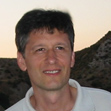
Dr Nebjosa Mojsilovic
Department of Civil Engineering and Geomatic Engineering at the Swiss Federal Institute of Technology, Zurich, Switzerland
Associate Professor Mark Masia from the Centre for Infrastructure Performance and Reliability within the UON’s Faculty of Engineering and Built Environment (FEBE) hosted Dr Nebjosa Mojsilovic from the Department of Civil Engineering and Geomatic Engineering at the Swiss Federal Institute of Technology (ETH) in Zurich, Switzerland for a two month stay in early 2015.
During this, his third visit to the UON, Dr Mojsilovic continued collaboration with the Masonry Group of UON in valuable research into the behaviour of masonry subject to seismic loads. As well as participating in research, Dr Mojsilovic presented seminars for staff and postgrad students at FEBE on the current masonry related research projects being undertaken at ETH.
Data regarding energy dissipation in structural masonry is especially crucial to design in an earthquake event. Dr Mosjsilovoc and Dr Masia worked together to formulate and develop an appropriate and sound basis for seismic assessment and performance so as to obtain data on the mechanical charateristics, energy dissipation and overall behaviour of the masonry structures subjected to seismic loading.
Dr Masia explains: “The visit was particularly well timed as Dr Mojsilovic was in Newcastle during the crucial setup stage of an extensive experimental testing program. He brought to the project his expertise in the digital image correlation technique for recording continuous strain field data during testing. The technique had not previously been used by Dr Masia’s team, and Dr Mojsilovic was instrumental in transferring this capability to the Newcastle team (including Masia, RHD student Clive Allen and laboratory technicians). This capability will now be used into the future on many similar projects.”
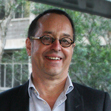
Professor Andy Furlong
School of Education at the University of Glasgow, Scotland
Professor Andy Furlong, from the School of Education at the University of Glasgow, Scotland was a guest of Professor Pam Nilan, from the Newcastle Youth Studies Group within the Faculty of Education and Arts (FEDUA) for three weeks during May 2015.
A Fellow of the UK Academy of Social Science, Professor Furlong is currently Conjoint Professor at University of Newcastle. A flying visit in 2013 saw the beginning of a partnership, with this trip consolidating collaboration between the University of Newcastle and the University of Glasgow in the research area of youth transitions.
A leading figure in sociology of youth worldwide, Professor Furlong’s research interests revolve around the experiences of young people in education and their transitions from education to employment.
As Commissioning Editor for a Routledge book series on youth, during his visit Professor Furlong facilitated the publication of new books on youth issues by members of the Youth Studies Group. An international grant proposal was developed but is still at the stage of searching for a funding source.
During his visit, as Editor in Chief of the internationally renowned Journal of Youth Studies, Professor Furlong presented a lunchtime brown bag talk on how to publish successfully, and facilitated a FEDUA RHD student forum focused on of youth mobility, inclusion and exclusion, and social justice. Professor Furlong also presented a public seminar on his own research: “Revisiting youth transitions; reproducing social inequities in modern times.”
Professor Furlong described his visit as: 'A welcome opportunity to work with youth studies scholars in Australia. They bring a whole new flavour to the academic field, with lots of innovative ideas'.
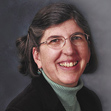
Professor Nancy Edwards
Institute of Population and Public Health at the University of Ottawa, Ontario, Canada
Plotting out an upcoming sabbatical and following up connections made during a previous trip were the motivations for a UON visit by Professor Nancy Edwards Director -- Institute of Population and Public Health at the University of Ottawa (UoO), Canada in August 2015.
Professor Ron Plotnikoff, Newcastle's first Chair in Physical Education and Population Health and founding director of the Priority Research Centre for Physical Activity and Nutrition (PRC-PAN) hosted Professor Edwards, whom he worked under for 5 years in her capacity as Director of the Community Health Research Unit based at UoO.
Professor Edwards’ two week stay served to lay the groundwork for a two week visit in 2016/17 during which time she will collaborate with PRC-PAN on design and dissemination of physical activity interventions, and expediting the preparation process of publications during the sabbatical period.
An international expert in Population Health with a specific focus on complex, multi-level, public health interventions, methodologies and knowledge translation, Dr Edwards provided training expertise to PRC-PAN academics and students. Other partners and collaborators of the PRC-PAN within the Faculty of Education and Arts (FEDUA), the Faculty of Health and Medicine (FHEAM), Hunter Medical Research Institute (HMRI) and Hunter New England Health (HNEH) also benefitted from Professor Edward’s expertise during her stay.
Both this visit and Professor Edward’s impending sabbatical involve the development of collaborative projects that strengthen existing links between these organisations.
This visit also generated an NHMRC Centre of Research Excellence Application led by the University of Newcastle, with partnership from University of Ottawa, University of Sydney, and University of Queensland.
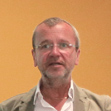
Professor Hartmut Holzmüller
Chair of Marketing at TU Dortmund University, Germany
Professor Hartmut Holzmüller, Chair of Marketing at TU Dortmund University, Germany, was hosted by Dr Philip J Rosenberger III at UON's Centre for Institutional and Organisational Studies (CIOS) within the Faculty of Business and Law during a three week visit in late 2015.
An international leader in the arena of brand marketing and management, Professor Holzmüller shared insights regarding TU Dortmund University’s collaborative projects with external business entities. These highlighted how his Department has established productive collaborative links with local industry, in terms of generating external research funding as well increased engagement and involvement with the Department and University. These insights provided the basis of a research collaboration looking to identify potentially innovative products and marketing processes for German football team BVB Dortmund and local teams the Jets and Mariners.
The UON and Central Coast Food Innovation Cluster participants also benefitted from Professor Holzmüller’s expertise in marketing feasibility analyses and university-industry collaboration. Another key area of expertise Professor Holzmüller shared during his visit was around the direct observation approach for generating customer insights in industrial markets.
Professor Holzmüller’s visit has led to several benefits and outcomes, both immediate and longer term in focus. The more immediate impact has been through submission of external competitive grant submissions, involvement in journal publications, the provision of insightful feedback to several of our RHD students and the sharing his research with members of the Newcastle Business School and UON and their approach to local-industry engagement.
One immediate outcome of note was a collaboration with the German-Australian Chamber of Industry and Commerce in Sydney during his visit. Professor Holzmüller presented an industry-oriented seminar at UON’s Sydney campus as part of the Chamber’s Twilight Forum series: Brand Management in Professional Football – Conceptual Insights and a Best Practice Case from Germany. The event was well promoted by the Chamber both in the lead up to the event and following the event in terms of social-media coverage by the Chamber, which has given the University positive exposure within the Sydney business community. This has led to further interactions with the Chamber, which has included a joint article (authored by Dr Rosenberger III, Professor Holzmüller and one of his staff) for a recent issue of the Chamber’s magazine.
In addition to Dr Rosenberger III pursuing further personal collaboration with Professor Holzmüller and his Department, opportunities in terms of research and RHD supervision collaboration are being pursued at the Department/School level.
These opportunities include the prospective appointment of Professor Holzmüller’s as a conjoint with the Faculty, and a potential dual-degree agreement which will further develop the relationship between the two Universities.
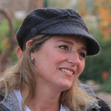
Associate Professor Saskia Keesstra
Soil, Physics and Land Management Department of Wageningen University, Netherlands
The University of Newcastle’s ARC Future Fellow Patricia Saco met Associate Professor Saskia Keesstra during a visit to Wageningen University in The Netherlands in 2014. Dr Keesstra, from the Environmental Science Group within the Soil, Physics and Land Management Department of Wageningen University then travelled to Newcastle for two weeks in August 2015 to explore collaborative opportunities with Dr Saco, from UON’s Faculty of Engineering and Built Environment (FEBE).
Dr Keesstra is currently leader of a COST ACTION project whose goal is to enable transfer of current understanding of hydrologic and sediment connectivity “into useable science…that will inform holistic management of catchment systems.” This visit not only confirmed the placement of UON’s FEBE on the cutting edge of new research paradigms in Environmental Science and Engineering Research but also presented the opportunity to link with research networks consisting of COST ACTION affiliated members in all European Countries. Dr Keesstra is also the President of the Division on Soil System Sciences of the European Geosciences Union.
The focus of this new collaboration is to establish links between coevolution of vegetation, soil and landforms in semiarid to humid landscapes (Dr Saco’s area) and the evolution of connectivity of water and sediments (Dr Keesstra’s area) using a state of the art and unique modeling framework to developed by Dr Saco’s research group.
Immediate outcomes from Dr Keesstra’s visit are two manuscripts on hydrologic and sediment that are currently in preparation to be submitted to high impact journals. This new collaboration has also led to a more active participation of Dr Saco in the European COST Action meetings. Dr Saco has just delivered an invited talk in a recent COST Action meeting in Palermo, Italy (March 2016), and plans to continue active participation in this Action.
Long-term outcomes include plans to submit joint proposals, and the identification of suitable funding opportunities for joint PhD students to work on connectivity research across both Institutions. In addition, to further strengthen this collaboration, Dr Keesstra has just been appointed as a conjoint Associate Professor in Faculty of Engineering and Built Environment at the University of Newcastle.

Professor Chad E Cook
Department of Orthopedics and Vice Chief of Research at Duke University, Durham, USA
Dr Chad E Cook, Professor in the Department of Orthopedics and Vice Chief of Research at Duke University, Durham, USA visited Associate Professor Suzanne Snodgrass from UON’s School of Health Sciences (Physiotherapy) in May 2015.
A recognised expert in Delphi research, Professor Cook is the senior author on several publications on concussion and related cervical spine sequelae. With a special interest in ‘second impact syndrome’, Cook worked with Associate Professor Snodgrass and her team, to establish protocols for determining cervical spine outcomes related to concussion injury, and pilot these methods to support future multi-site cross-continent projects.
During his visit, Professor Cook joined a panel discussion chaired by Associate Professor Snodgrass presenting the latest research findings on sports concussion to the public, as well as sharing his expertise with researchers and local physiotherapists.
This visit was the first step in a partnership with Professor Cook and Duke University, expected to generate publications, grants, research students, academic exchanges, and recognition for Newcastle as an international leader in concussion research.
Professor Cook says of his visit:
“The partnership between Duke Doctor of Physical Therapy and the University of Newcastle creates unique synergies for our groups. We (Duke University) have the opportunity to optimize exposure to world-renowned experts at Newcastle and the relationship opens up U.S. based opportunities for collaboration for the strong faculty at Newcastle. Shared resources is a common goal and one that we feel will initiate a future trend among top universities.”
2014 IRVF Fellows
|
|

Professor Randall Lee
Department of Medicine/Cardiology at the University of California, USA
Hosted by Professor Andrew Boyle in the School of Medicine & Public Health, Professor Randall Lee visited the UON from the Department of Medicine/Cardiology at the University of California (San Francisco), USA (ranked 8th in the world according to THE). A world renowned cardiovascular scientist in the area of cardiac regeneration, Professor Lee shared his expertise with researchers from the Cardiovascular Research Program, based at HMRI. Boyle stated "This visit by Professor Lee strengthened the collaborative relationship between UoN and UCSF, and laid the groundwork for new research projects together." The visit resulted in outlining a strategy for research higher degree students to travel between the two institutions, enhancing their experience and improving the potential for research translation. Professor Lee noted "There are great strengths here in Newcastle, in particular, the close relationship between UON, HMRI and the John Hunter Hospital."
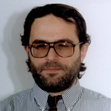
Professor Costas Iliopoulos
Department of Informatics at the King's College London, UK
Hosted by Professor Ljiljana Brankovic in the School of Electrical Engineering and Computing, Professor Costas Iliopoulos visited the UON from the Department of Informatics at the King's College London, UK, a distinguished university ranked 31st in the world by THE World University Reputation Rankings 2015. With strong expertise in Algorithm Design, Professor Iliopoulos explores methodologies and data structures for interpreting, storing and quantizing massive data surrounding 2nd and 3rd generation genomic sequencing technologies. Professor Illiopoulos collaboration with Professor Brankovic led to new results in genomic sequencing, and in particular in identifying regions of erroneous readings in assembly graphs, known as bubbles and superbubbles. This research lead to a prestigious International Exchanges funding from Royal Society, UK, to facilitate further collaboration between UON and King's College London.
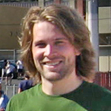
Dr Arnfinn Eielsen
Department of Engineering Cybernetics Norwegian University of Science and Technology, Norway
Dr Andrew Fleming in the School of Electrical Engineering and Computing, Dr Arnfinn Eielsen visited the UON from the Department of Engineering Cybernetics Norwegian University of Science and Technology. His work in precision motion control is critical to ongoing collaborative work with the UON Precision Mechatronics Lab developing new methodologies for the control of scanning laser and probe-based lithography equipment. While on campus, Dr Eielsen also shared his expertise in a short course with graduate students, and is now co-supervising a UON PhD student. Dr Eielsen returned to the Precision Mechatronics lab in 2015 as a full-time research fellow to continue his research in high-resolution motion control and data converter design. This move strengthens the laboratories position in this field and is presently opening up exciting new avenues for research through to 2017.

Professor Ian Adcock
National Heart & Lung Institute Imperial College London, UK
Hosted by Professor Phil Hansbro in the School of Biomedical Sciences & Pharmacy, ProfessorIan Adcock visited the UON from the National Heart & Lung Institute Imperial College London, UK (ranked 10th in the world according to Times Higher Education [THE] ranking system). A world renowned respiratory researcher with specific interests in asthma and chronic obstructive pulmonary disease (COPD), Professor Adcock shared his expertise with researchers from the UON Priority Research Centre in Asthma and Respiratory Diseases, developing further research projects in epigenetic changes in COPD. He also presented his key research directions to local researchers in the School and the Hunter Medical Research Institute (HMRI). As a result of Professor Adcock's visit was a successful large grant application ($1.2 million) investigating the epigenetics of COPD to the National Health and Medical Research Council in 2014, with another submitted in 2015 by Professor Hansbro. Also three manuscripts resulting from Professor Adcock's visit are under review at high impact journals.

Dr Sun Sumei
Department of Advanced Communication Technology Institute for Infocomm Research (I2R), Singapore
Hosted by Associate Professor Jamil Khan in the School of Electrical Engineering and Computing, Dr Sun Sumei visited the UON from the Department of Advanced Communication Technology Institute for Infocomm Research (I2R), Singapore, where she is Department Head. Institute for Infocomm Research is a publicly funded research institute under the Agency for Science, Technology, and Research (A*STAR). Dr Sun is also an adjunct associate professor at the Electrical and Computer Engineering Department, National University of Singapore. Her visit provided our local researchers with the opportunity to combine complimentary research strengths in the area of Telecommunications engineering technologies. Dr. Sun is one of the top international researchers in wireless communications area, her visit gains her a much better understanding on the research activities in UON and beyond, according to Dr Sun. This opens up new possibilities of cooperation between UON and I2R. Such international cooperation could lead to further cooperative linkage through the I2R.
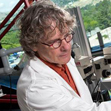
Professor Richard Rabbitt
Department of Bioengineering at the University of Utah, USA
Hosted by Dr Rebecca Lim in the School of Biomedical Sciences & Pharmacy, Professor Richard Rabbitt visited the UON from the Department of Bioengineering at the University of Utah, USA (ranked 143rd in the world according to THE). A renowned bioengineer and biophysicist, Professor Rabbitt's research focusses on balance and auditory function of the inner ear, and in collaboration with researchers from the Priority Research Centre for Translational Neuroscience and Mental Health, a new multidisciplinary line of enquiry investigating laser stimulation of the inner ear. His presentations to local researchers at both the School and HMRI were well received.
The visit by Professor Rabbitt was highly successful – we made some groundbreaking discoveries regarding how laser light activates balance cells. We are currently preparing the results of this research to be submitted as a manuscript and has been the foundation for two competitive grant submisssions, one National (NH&MRC) and one International (National Institute of Health, USA). Remarkably, during Professor Rabbitt's short visit to Newcastle we also discovered a previously unknown means of enhancing communication between balance cells and the central nervous system. This finding has the potential to open new avenues for treating balance disorders. We intend to build on these findings as part of an ongoing and successful collaboration with Professor Rabbitt.
From Professor Rabbitt:
"Australia is a true leader in bringing innovative technology and neuroscience to the diagnosis and treatment of balance disorders arising in the inner ear vestibular organs. I was truly excited to have the opportunity to work directly with experts Dr. Alan Brichta and Dr. Rebecca Lim in their laboratory at the University of Newcastle to examine how inner ear sensory hair cells respond to key neurotransmitters and optical stimuli. I truly felt that combining our techniques and skills would bring new understanding to key questions in vestibular neuroscience. And, indeed, we made some interesting discoveries".
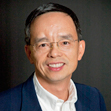
Professor Zi-Kui Liu
NSF Center for Computational Materials Design, Pennsylvania State University, USA
Hosted by Professor Graeme Murch in the School of Engineering, Professor Zi-KuiLiu is from the NSF Center for Computational Materials Design, Pennsylvania State University, USA (ranked 49th in the world according to THE). His work in computational materials science is at the forefront of modelling and design of a wide range of advanced materials through combining first-principles calculations, statistical thermodynamics and diffusion modelling to design experiments for structural and functional applications. Professor Liu's research interests are closely aligned with research performed at the Centre for Mass and Thermal Transport in Engineering Materials which specializes in both the underlying theory for diffusion-based computer modelling and the calculations. Professor Liu highly praised the strong theoretical expertise of the Newcastle team and said that he benefited very greatly from the collaborative research work during his visit.
It can be added that an exciting long term research collaboration has been firmly established between members of the Centre and this outstanding researcher. A series of high quality papers/reviews and book chapters are in preparation and new joint research grant applications (in the US and in Australia) have been submitted."
The University of Newcastle acknowledges the traditional custodians of the lands within our footprint areas: Awabakal, Darkinjung, Biripai, Worimi, Wonnarua, and Eora Nations. We also pay respect to the wisdom of our Elders past and present.
 >
>